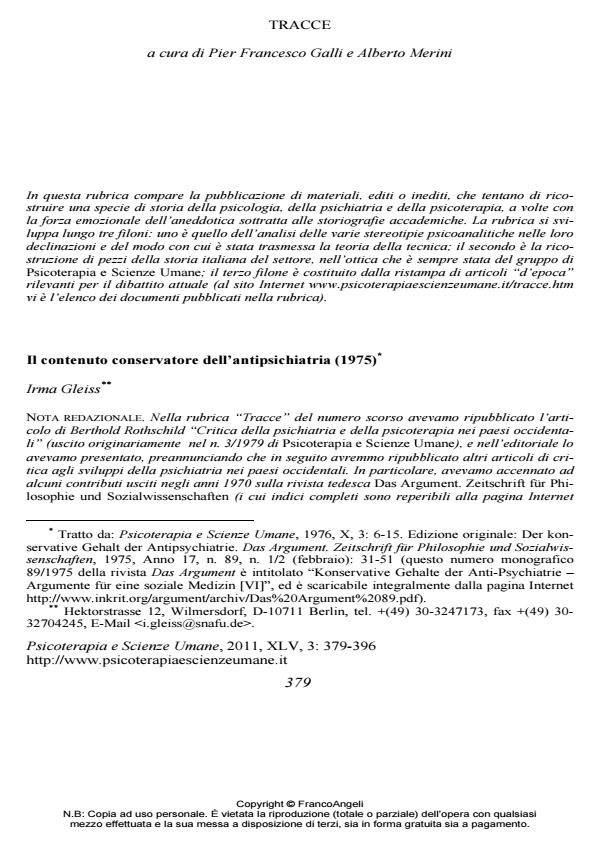The conservative nature of antipsychiatry
Journal title PSICOTERAPIA E SCIENZE UMANE
Author/s Irma Gleiss
Publishing Year 2011 Issue 2011/3 Language Italian
Pages 18 P. 379-396 File size 265 KB
DOI 10.3280/PU2011-003005
DOI is like a bar code for intellectual property: to have more infomation
click here
Below, you can see the article first page
If you want to buy this article in PDF format, you can do it, following the instructions to buy download credits

FrancoAngeli is member of Publishers International Linking Association, Inc (PILA), a not-for-profit association which run the CrossRef service enabling links to and from online scholarly content.
The positions of the anti-psychiatry movement, as expressed in the 1960-70s mostly by Ronald Laing, David Cooper, and Franco Basaglia, are criticized and seen as "conservative" regarding the origins and treatment of mental disorders. Labelling theory by L.P. Ullmann and L. Krasner, and theory on deviant behavior by Talcott Parsons are also criticized and, even if generally considered opposite to anti-psychiatry, are seen to be sharing the same view of man and society. (This paper originally appeared in German on pp. 31-51 of issue no. 89/1975 of the journal Das Argument, and is a reprint from the Italian edition that appeared on pp. 6-15 of issue no. 3/1976 of the journal Psicoterapia e Scienze Umane).
Keywords: Anti-psychiatry, labelling theory, sociopsychiatry, deviant behavior, history of psychiatry
Irma Gleiss, Il contenuto conservatore dell’antipsichiatria (1975) in "PSICOTERAPIA E SCIENZE UMANE" 3/2011, pp 379-396, DOI: 10.3280/PU2011-003005